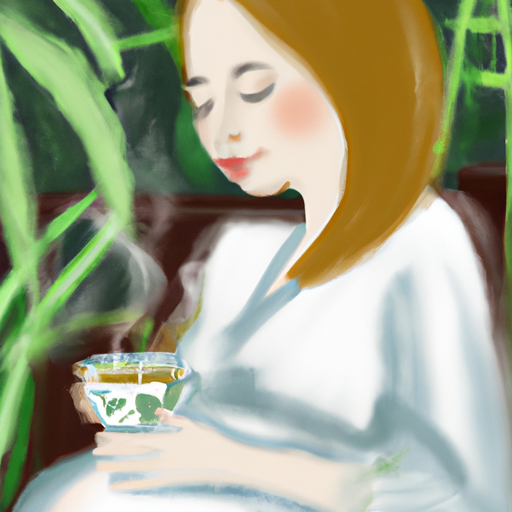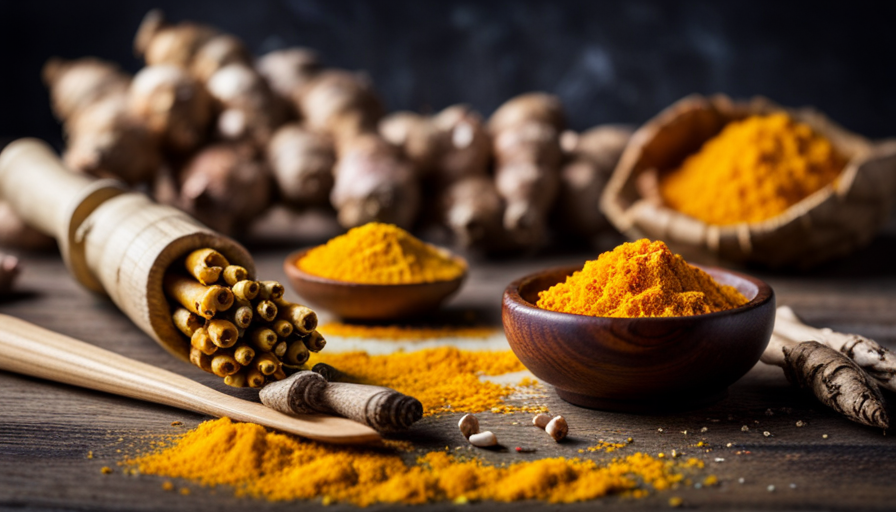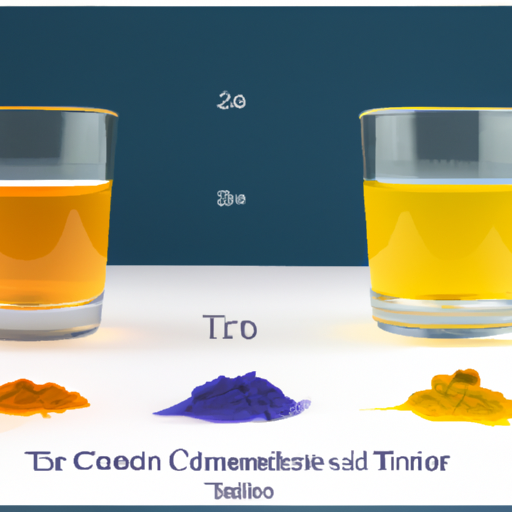Did you know that approximately 70-80% of pregnant women experience nausea and vomiting during their pregnancy?
It’s a common and often unpleasant symptom that can make day-to-day life challenging. Many women turn to natural remedies like ginger tea to find relief.
But the question remains, is ginger tea safe during pregnancy? In this article, I will explore the benefits of ginger tea during pregnancy, safety considerations, and its potential effects on both the mother’s health and the developing baby.
By providing evidence-based information, I aim to help you make an informed decision about whether ginger tea is the right choice for you. Additionally, I will discuss alternative options for nausea relief and provide tips for safely consuming ginger tea during pregnancy.
It’s crucial to prioritize your health and your baby’s well-being, and with the right information, you can make the best choices for a healthy pregnancy.
Key Takeaways
- Ginger tea is commonly used to alleviate nausea and vomiting during pregnancy.
- Consultation with a healthcare provider is important before consuming ginger tea during pregnancy due to potential risks and adverse reactions.
- Alternative options for nausea relief during pregnancy include peppermint tea, lemon tea, and chamomile tea.
- Every pregnancy is different, so what is safe for one woman may not be safe for another, and personalized advice from healthcare providers is crucial.
Benefits of Ginger Tea during Pregnancy
You’ll be glad to know that ginger tea can provide numerous benefits during pregnancy. It’s been used for centuries to alleviate nausea and morning sickness, which can be common during the first trimester. Ginger tea is a natural remedy that can help soothe an upset stomach and reduce vomiting.
Additionally, ginger has anti-inflammatory properties that may help relieve joint pain and swelling, which can be especially useful during pregnancy. It can also aid in digestion and prevent bloating and constipation.
However, it’s important to note that while ginger tea is generally considered safe, it’s always recommended to consult with your healthcare provider before consuming it during pregnancy. They can provide personalized advice based on your specific situation and medical history.
Moving on to safety considerations for consuming ginger tea, it’s essential to be aware of any potential risks.
Safety Considerations for Consuming Ginger Tea
Expectant mothers should be mindful of potential risks when enjoying a warm, soothing cup of this aromatic beverage. While ginger tea offers many benefits during pregnancy, safety considerations must be taken into account. It is generally considered safe to consume ginger tea in moderate amounts, but it is still important to consult with a healthcare professional before incorporating it into your daily routine. To provide a clearer understanding of the safety considerations, I have created a table that outlines the potential risks and benefits of ginger tea during pregnancy:
| Potential Risks | Benefits |
|---|---|
| – May cause heartburn or acid reflux | – Relieves nausea and morning sickness |
| – Can increase the risk of bleeding | – Reduces muscle pain and inflammation |
| – May interfere with certain medications | – Aids digestion and reduces bloating |
If you are concerned about the potential risks, there are alternative options for nausea relief that you can discuss with your healthcare provider. It is important to stay informed and make the best decision for your health and the health of your baby. Moving forward, let’s explore the potential effects of ginger tea on the mother’s health.
Potential Effects on the Mother’s Health
Pregnancy can be a time of uncertainty, but understanding the potential effects on the mother’s health can provide reassurance and peace of mind. Ginger tea is known for its various health benefits, but it’s important to consider its effects on digestion and impact on blood pressure during pregnancy.
Ginger has been traditionally used to alleviate digestive discomfort such as nausea and vomiting, which are common symptoms in pregnancy. However, it’s important to note that excessive consumption of ginger tea may cause heartburn or worsen existing digestive issues.
Additionally, ginger has been shown to have blood-thinning properties, which can potentially lower blood pressure. Therefore, it’s advisable to consult with a healthcare professional before incorporating ginger tea into your pregnancy diet to ensure it’s safe for you and your baby.
Potential Effects on the Developing Baby
Beware, little one, for the potential effects on your delicate existence are yet to be fully understood. While ginger tea is generally considered safe during pregnancy, its effects on the developing baby are still being studied.
Some studies suggest that consuming large amounts of ginger may increase the risk of miscarriage or preterm labor. However, these findings aren’t conclusive, and more research is needed to understand the true impact. Furthermore, the long-term consequences of ginger tea on the baby’s development are unknown. It’s important to consult with a healthcare provider before consuming ginger tea during pregnancy to ensure the safety of both the mother and the baby.
Transitioning into the subsequent section about alternative options for nausea relief during pregnancy, it’s essential to explore other remedies that can provide relief without potential risks.
Alternative Options for Nausea Relief during Pregnancy
If you’re looking for alternative options for relieving nausea during this special time, there are plenty of remedies to explore. Natural remedies can provide relief without any potential risks to the developing baby. Herbal teas, in particular, have been used for centuries to alleviate morning sickness. One popular option is peppermint tea, known for its soothing properties and ability to calm an upset stomach. Another effective choice is lemon tea, which can help reduce nausea and promote digestion. Chamomile tea is also a great option, as it has anti-inflammatory properties and can help relax the digestive system. Incorporating these herbal teas into your daily routine may offer some relief from pregnancy-related nausea. Moving forward, let’s explore some tips for safely consuming ginger tea during pregnancy.
Tips for Safe Consumption of Ginger Tea during Pregnancy
When it comes to safely consuming ginger tea during pregnancy, there are a few key points to keep in mind. Firstly, using fresh ginger can provide the most benefits as it contains higher levels of active compounds.
Secondly, it’s important to control your intake and not exceed the recommended amount, as excessive consumption may lead to adverse effects.
Lastly, it’s crucial to monitor for any adverse reactions and consult with your healthcare provider if you experience any concerning symptoms.
Using Fresh Ginger and Controlling Intake
Using fresh ginger in moderation is like adding a pinch of spice to a recipe, ensuring a safe and enjoyable pregnancy experience.
When using dried ginger to make ginger tea, it’s important to remember that the concentration of ginger may be stronger compared to using fresh ginger.
To make ginger tea, you can steep a few slices of fresh ginger in hot water for about 10 minutes. You can also find ginger tea recipes online that provide variations and additional ingredients to enhance the flavor.
It’s recommended to limit your intake of ginger tea to no more than 1-2 cups a day. This allows you to enjoy the benefits of ginger while minimizing the potential risks.
Monitoring for any adverse reactions is crucial, so if you experience any discomfort or unusual symptoms, it’s important to consult with your healthcare provider.
Monitoring for Any Adverse Reactions
One way to ensure a pleasant experience is by keeping an eye out for any negative reactions. When consuming ginger tea during pregnancy, it’s important to monitor for any adverse reactions that may occur. Here are four important aspects to consider in monitoring for any adverse reactions:
-
Allergic Reactions: Watch out for symptoms such as itching, hives, or difficulty breathing, which could indicate an allergic reaction to ginger.
-
Digestive Issues: Pay attention to any stomach discomfort, heartburn, or diarrhea that may occur after consuming ginger tea.
-
Blood Clotting: Monitor for any unusual bleeding or bruising, as ginger may affect blood clotting.
-
Drug Interactions: Be cautious if taking medications, as ginger may interact with certain drugs, leading to potential adverse effects.
By monitoring for these potential risks and analyzing any adverse reactions, you can make an informed decision about whether ginger tea is safe for you during pregnancy.
Conclusion: Making an Informed Decision
To make an informed decision about consuming ginger tea during pregnancy, you need to consider all the available evidence and consult with your healthcare provider. While ginger tea has been used for its medicinal properties for centuries, its safety during pregnancy is still a topic of debate.
Some studies suggest that ginger tea may help alleviate nausea and vomiting, which are common symptoms during pregnancy. However, there is also evidence that excessive consumption of ginger tea may increase the risk of miscarriage or preterm birth.
It is important to note that every pregnancy is different, and what may be safe for one woman may not be safe for another. Therefore, it is crucial to consult with your healthcare provider before incorporating ginger tea into your diet. They can provide personalized advice based on your specific medical history and circumstances.
Frequently Asked Questions
Can ginger tea be consumed during the first trimester of pregnancy?
Ginger tea can be safely consumed during the first trimester of pregnancy. It can help alleviate morning sickness, and its properties aid in maintaining digestive health throughout pregnancy.
Is it safe to consume ginger tea daily during pregnancy?
Consuming ginger tea daily during pregnancy can be safe and beneficial. It helps with nausea, digestion, and inflammation. Recipes include steeping grated ginger in hot water or adding it to herbal teas.
Can ginger tea have any negative effects on the baby’s development?
Ginger tea can provide relief from morning sickness and promote digestive health during pregnancy. However, it is important to consult with a healthcare professional to ensure it does not have any negative effects on the baby’s development.
Are there any risks associated with drinking ginger tea in excessive amounts during pregnancy?
Excessive ginger tea during pregnancy may lead to digestive issues or heartburn. However, moderate consumption provides relief from morning sickness. Remember, "everything in moderation" applies to ginger tea as well.
What are some alternative options for relieving nausea during pregnancy if ginger tea is not recommended?
Natural remedies for morning sickness during pregnancy include consuming small, frequent meals, staying hydrated, and eating bland, easily digestible foods. Herbal teas such as peppermint, chamomile, and lemon balm may also help relieve nausea in pregnant women.
Conclusion
In conclusion, after considering the benefits and safety considerations, it can be said that ginger tea is generally safe to consume during pregnancy. Research suggests that it can help alleviate nausea and other digestive issues commonly experienced during pregnancy. However, it’s important to note that every pregnancy is unique, and consulting with a healthcare provider is essential.
Interestingly, a study found that pregnant women who consumed ginger tea had a 29% reduction in nausea and vomiting compared to those who didn’t. Ultimately, making an informed decision based on individual circumstances is crucial.









